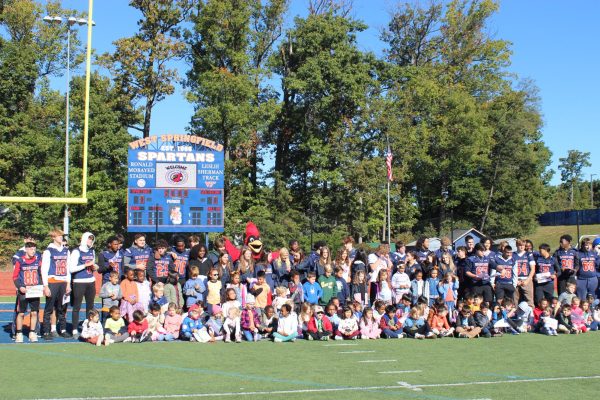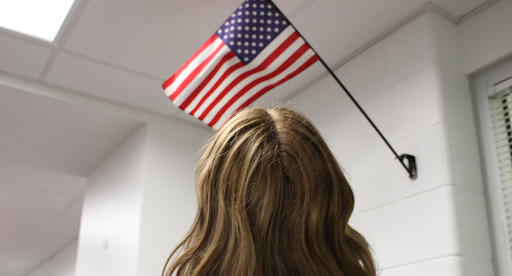Affirmative action: uninformed, unsure, but not unimportant

Photo courtesy of Madison Bell
Admissions policies at Thomas Jefferson High School have recently been challenged for discrimination against Asian-American students. Earlier this year, protests were held in response.
The Supreme Court will hear a case regarding the application of affirmative action in the admission policies of Harvard University and the University of North Carolina (UNC). This case could change college applications, however, when it comes to affirmative action, students seem to feel uninformed and uncertain.
Affirmative action is a policy that aids traditionally disenfranchised groups by providing them with access to special education and employment opportunities. The case brought to the court by the Students for Fair Admissions (SFFA) claims the admission policies Harvard and UNC use are discriminatory against Asian-American applicants. The court is expected to reach a decision by the summer of 2023.
“I have heard about Harvard facing criticism for possibly denying Asian American students admission. I know the basic amount about affirmative action from what is shown in the media [and talked about with family]. I don’t recall ever doing deep research into it,” said senior Jessica Joyner.
Much of the student population shares this sentiment. Of the 25 WS students who responded to a survey, 40% knew very little about affirmative action, 44% only had a moderate understanding, and 12% did not know what affirmative action was.
“Since I am mixed race, I’m sure affirmative action will impact my college acceptance process in some sort of way,” stated Joyner.
Although nine states have banned race-based affirmative action, Virginia allows colleges to consider it in the application process. Significant institutions such as the University of Virginia (UVA) and Virginia Polytechnic Institute (Virginia Tech) take race into account as a part of their holistic reviewing process. Of the students surveyed, 64% stated they felt unsure whether they agreed with affirmative action.
“I don’t think that race or gender should play any part in college applications because the focus should be on other qualities students have to offer. They shouldn’t judge a person from which race or gender they are,” said senior Nihel Abadji.
This sentiment aligns with some of the main concerns of the SFFA and other opponents of affirmative action. They argue it favors applicants who may be less qualified, instead choosing to base the decision on the candidate’s race and not on their merits. Harvard and UNC state that race is used as a tipping point between two qualified applicants, not as the sole determiner.
“No matter what the decision is, it will impact me since it may influence my college acceptance. I know there is a lot more nuance to what affirmative action entails, but from what I understand, I don’t see a problem in someone’s race being considered in their application, especially if it opens up opportunities for those who have historically been discriminated against. Creating a diverse campus can encourage others in marginalized communities to apply to those colleges as well,” stated Joyner.
As it stands now, it seems likely the Supreme Court will rule in favor of the SFFA. From there, the court could move to weaken race-based consideration or ban it from the application process completely. Although many students may not know exactly what affirmative action means, it is still important to know how it may affect them. The Supreme Court’s ruling has the potential to drastically change the way applications to these institutions and others are weighed in the future





